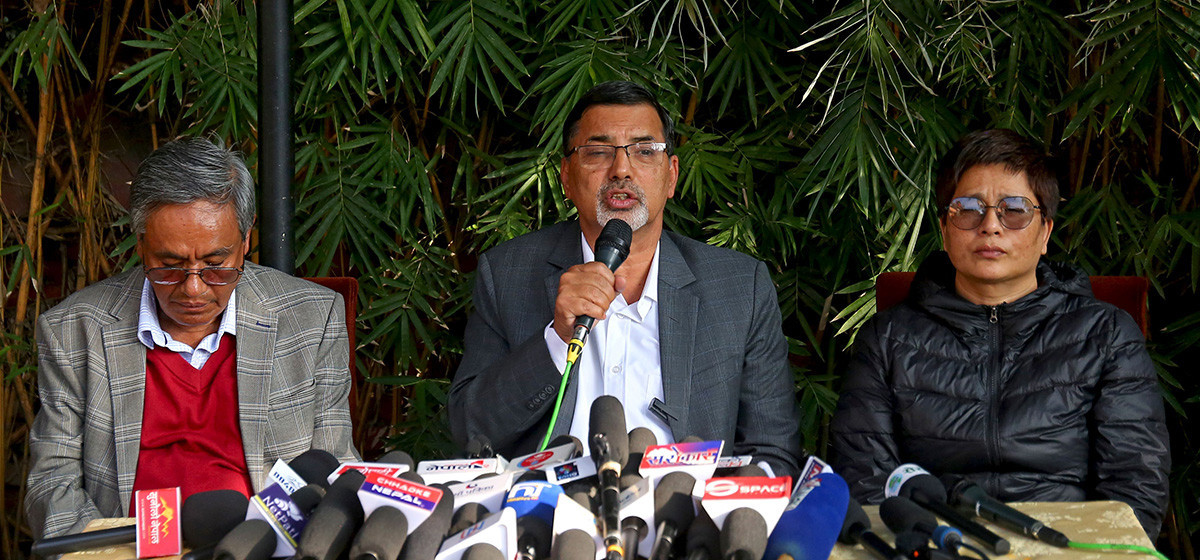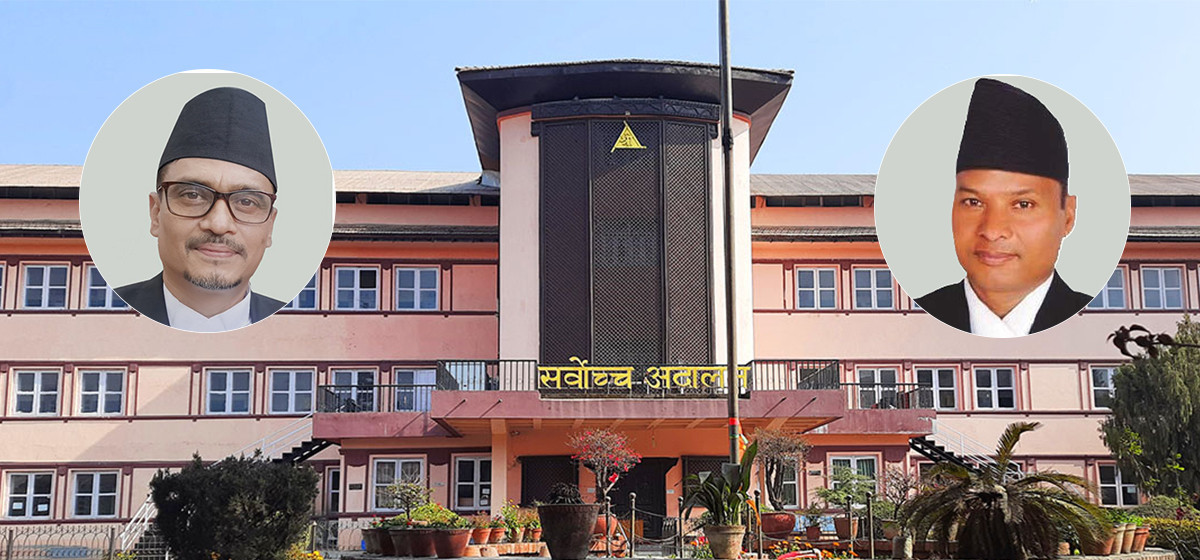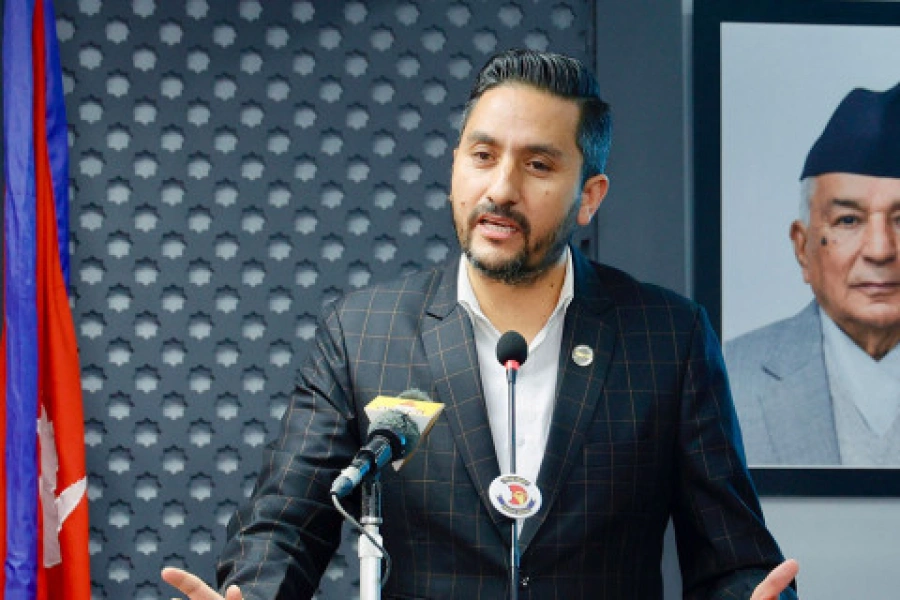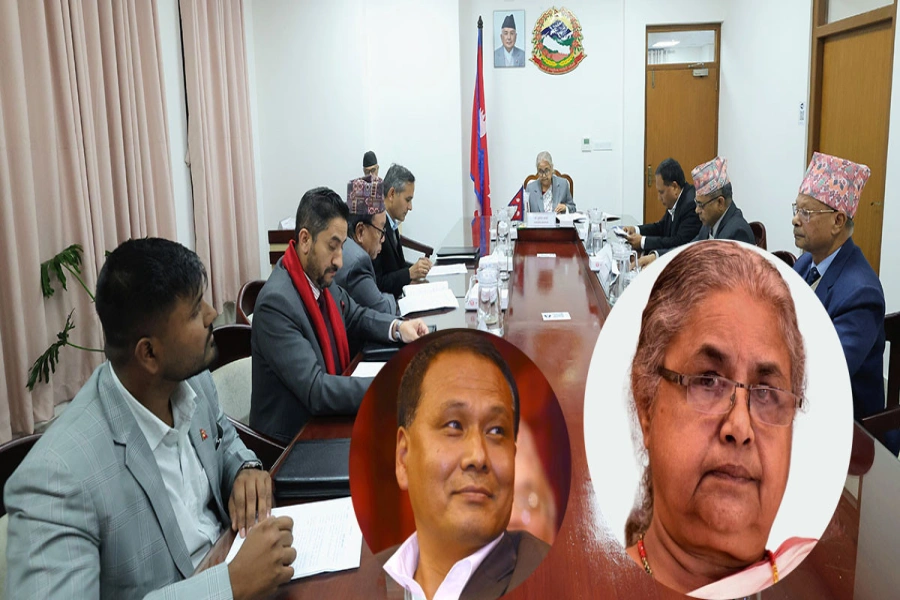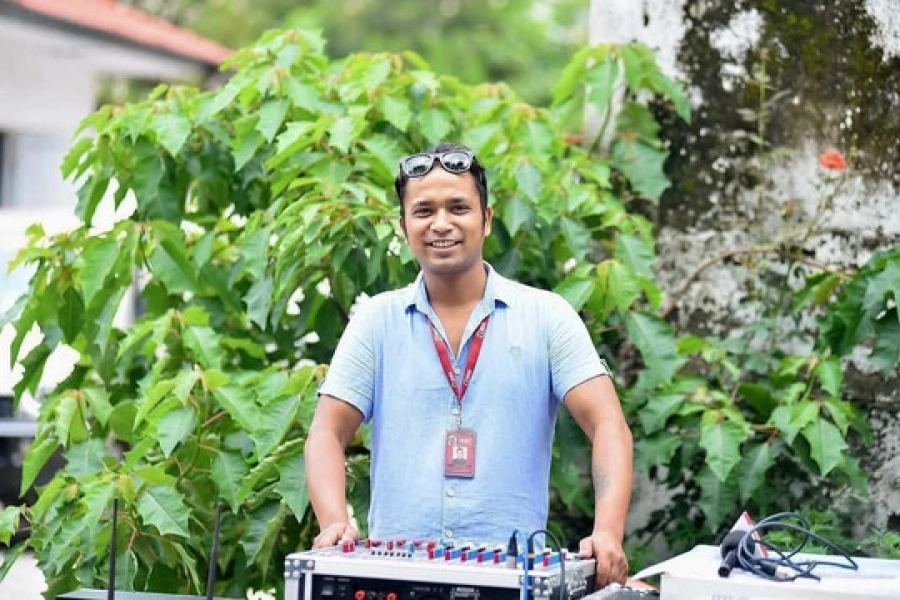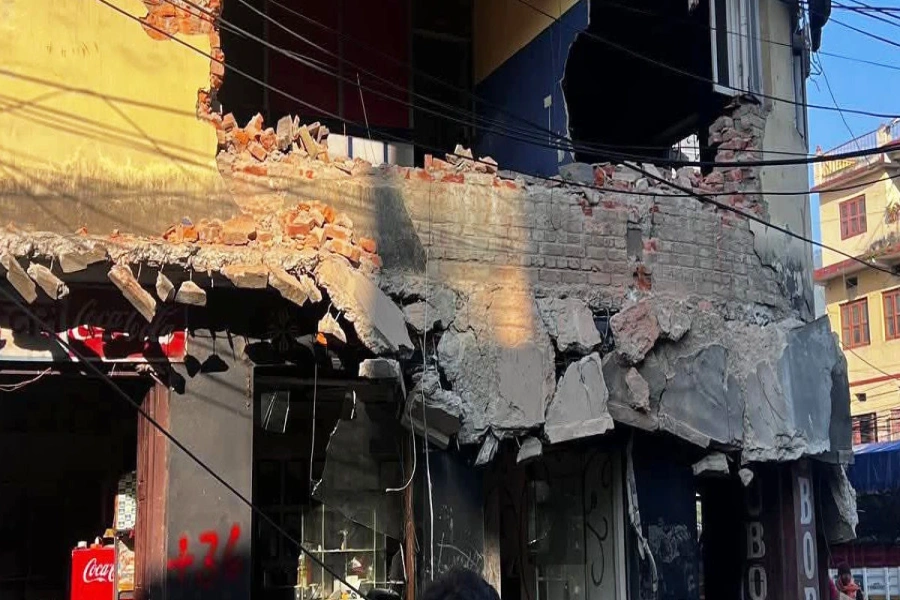KATHMANDU, June 25: The verdict acquitting Nepali Congress (NC) leader and Former Minister Mohammad Aftab Alam and others concludes that there was no explosion at Rautahat’s Raja brick kiln and dismisses the claim that Trilok Pratap Singh and OC Akhtar were killed, maintaining that their status remains unknown.
The full text of the verdict states that witness testimonies cannot be accepted as evidence. The court relied on testimonies presented by Alam’s side and concluded that the incident never occurred. The temporary bench of the High Court Janakpur, based in Birgunj, declared that testimonies from witnesses representing the supposed deceased youths could not be accepted as credible, issuing a contradictory ruling.
The court ruled there is no evidence that the two youths were burned alive after being injured in a ‘murder attempt involving explosives, including a bomb.’ The acquittal was issued on May 28, stating that there was no explosion at all. The joint bench of Judges Khusiprasad Tharu and Arjun Maharjan ruled that the two young men allegedly burned at the brick kiln in sacks were, in fact, unidentified.
Following the verdict, three complaints were filed against the judges at the Judicial Council, and both judges have since been transferred to the Supreme Court (SC). In the publicly released ruling on Tuesday, it is explained that the scene investigation found no explosion, the government failed to present any evidence of the deaths, and witness statements could not be accepted as proof. The court stated that the government’s witnesses’ statements could not serve as a basis for conviction.
“The government failed to present any evidence beyond witness statements. Although the witnesses Shailendra Sah and Harinarayan Sah stated that Pintu was injured in a bomb blast, their testimony cannot be accepted as reliable evidence,” the verdict reads. It further states that the status of the alleged deceased remains unknown. “It cannot be interpreted that the defendants killed those individuals by burning them in the brick kiln solely on the basis that their status is unknown. That interpretation is not in line with criminal jurisprudence,” the ruling states.
Alam has been framed, argues Alam's lawyer Raman Shrestha

The court suggests that the incident never happened, that Trilok Pratap and OC Akhtar were not present at the scene, were not killed, and may still be alive. Since Trilok and OC were free individuals capable of moving around independently, the court argued they couldn’t be said to be campaigning with Alam. “Based on the collected evidence, it could not be objectively proven that a bomb explosion occurred at Mohammad Aftab Alam’s house on 9 April 2008,” the verdict states. “The prosecution could not present solid evidence that Trilok Pratap and OC Akhtar, allegedly injured in the blast, were placed in a tractor and burned at Raja brick kiln.”
The court also ruled that the forensic test report did not confirm the allegation that the individuals were burned in the kiln. It explains that while the police collected ash from the site, there was no indication that any person was burned there. “All rooms of Alam’s house were found intact during the official inspection, with no sign of any bomb explosion,” the full text states.
On 9 April 2008, during the Constituent Assembly elections, a bomb explosion was reported at 6:30 pm at the Raja brick kiln. It was claimed that 24-year-old Trilok Pratap Singh (alias Pintu) and 22-year-old OC Akhtar were killed in the explosion. According to eyewitnesses, they were injured in the blast. The family and witnesses alleged that the injured were burned to death at the kiln to cover up the incident. The FIR also claimed that two Indian nationals were killed at the scene.
Twelve years later, on 13 October 2019, Alam was arrested. Following the High Court's decision, he was released. Alam was elected MP twice from Rautahat Constituency 2 and once served as Minister for Labour and Transport. However, the court concluded that there was no evidence that Trilok was ever present at the house of Sheikh Indris, the alleged crime scene.
The court noted that the government's own scene investigation did not confirm any explosion. “Even if the FIR’s claims are accepted, there is no evidence that Trilok Pratap Singh (alias Pintu) was under the control of the accused from April 2 to 9, 2008,” the verdict states. “Pintu, being able to freely roam the villages during the election campaign, cannot be interpreted as being under the control or in the company of the accused.”
The court reiterated that there was no confirmation that Trilok Pratap and OC Akhtar were involved in the explosion at 6:30 pm on April 9. It said the connection between OC Akhtar and the explosion broke down even in the official record. A forensic test report of OC Akhtar’s shoes, socks, and sweater recovered on April 18, showed no traces of blood, undermining the claim that he was injured in the blast.
The forensic report of the kiln ash, where Trilok Pratap was allegedly burned, did not confirm any human remains. The ruling said the links between events related to the incident did not support a cohesive chain of evidence. “Under the rules of circumstantial evidence, where there are two possible conclusions—one favoring guilt and one innocence—the one favoring the accused must be accepted,” the verdict notes.
The ruling references a 2064 human trafficking case verdict by Rautahat District Court, which listed Trilok Pratap as an absconding accused. A witness even claimed to have seen OC Akhtar alive in Lalbandi, Sarlahi, a few days after the 2064 election.
An official inspection of the alleged blast site at Sheikh Indris’s house described spider webs on the ceilings, all rooms in normal condition, and no signs of explosion or damage, with floors intact and roofs made of corrugated sheets.
Due to the failure to confirm the deaths of the alleged victims, the decision not to prosecute, made by the Office of the Attorney General on 14 July 2008, was also cited as a basis in the verdict. The SC had overturned that decision on 29 May 2012, ordering further investigation per prevailing law. Consequently, on 25 March 2019, a police investigation was reopened. Rautahat District Court had sentenced Mohammad Aftab Alam, Mohammad Mehtab Alam, Sheikh Seraj alias Shesh Seraj, and Badri Sahani to life imprisonment and one year in prison with a Rs 10,000 fine each under the Explosives Act. But the ruling states, “The verdict issued on 25 April 2024, was not found consistent and therefore all defendants are acquitted of the charges.”
Trilok Pratap’s 84-year-old father, Shreenarayan Singh, along with others, has already filed complaints at the Judicial Council seeking action against the two judges. The Judicial Council is said to be reviewing the case.





-1200x560-1765267769.webp)





